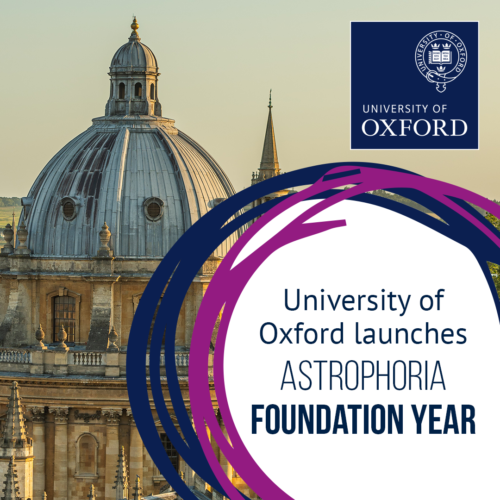Exeter College to offer Astrophoria Foundation Year
Exeter College is pleased to announce that it is one of the ten participating Oxford colleges in the first year of the University’s new Astrophoria Foundation Year, which will have its first intake in 2023.
The Foundation Year is open to UK state school pupils with significant academic potential, but who have experienced severe personal disadvantage or a disrupted education which has damaged their ability to apply directly for an Oxford undergraduate place. The programme will provide up to 50 students (approximately five per college) with a fully funded, supportive and challenging one-year academic course, aimed at developing their academic skills, self-belief and confidence. Students who meet the required standard at the end of the Foundation Year will be admitted to a standard Oxford undergraduate course. The funding, which covers all tuition fees and participants’ accommodation and living expenses, is supported by a major gift from a longstanding University donor.
Students will study one of four foundation courses: Humanities (Classics, History, English and Theology); Chemistry, Engineering and Materials Science; Philosophy, Politics and Economics (PPE); or Law. Exeter College is one of ten Oxford colleges taking part in the first year of the new initiative; the others are: Jesus, Keble, Lady Margaret Hall, Mansfield, Somerville, St. Anne’s, St Hugh’s, Trinity, and Wadham.
More information can be found on the University website.
The programme launch coincides with the release of the University’s fifth Annual Admissions Statistical Report for 2022, which shows the progress the University and Exeter College have made over the past few years in diversifying the UK-based undergraduate student body. It also contains data showing the breakdown of UK-based students admitted to undergraduate courses at Exeter College between 2019 and 2021.
The proportion of State school students on course at Exeter is now over 60%; and we have seen a further increase in the proportion of students from BME backgrounds from 20.1% in 2018-20 to 22% in the latest report. The proportion of students from less socioeconomically advantaged areas (ACORN categories 4 and 5) has increased from 12.4% (2018-20) to 14.8% (2019-21); while the proportion of students admitted from areas with low progression to higher education (POLAR quintiles 1 and 2) has increased from 9.6% in 2018-20 to 13.7% in 2019-21.
The statistics report indicates that we are making steady progress towards a more diverse undergraduate body, and the major goal of our outreach efforts is to increase the number of qualified applicants from areas of socioeconomic disadvantage and areas with low historic progression into higher education, as well as attracting a greater share of BAME applicants. Our support for the new Astrophoria Foundation Year forms part of that effort, and we continue to support the University’s “Opportunity Oxford” Programme, as well as offering our own College-based transition programme, “Exeter Plus”, which is aimed at students from disadvantaged socioeconomic backgrounds and offers additional support to these students to help them transition successfully from school to Oxford.
Exeter College is committed to attracting and admitting talented students of high academic achievement and potential, whatever their location and background.

